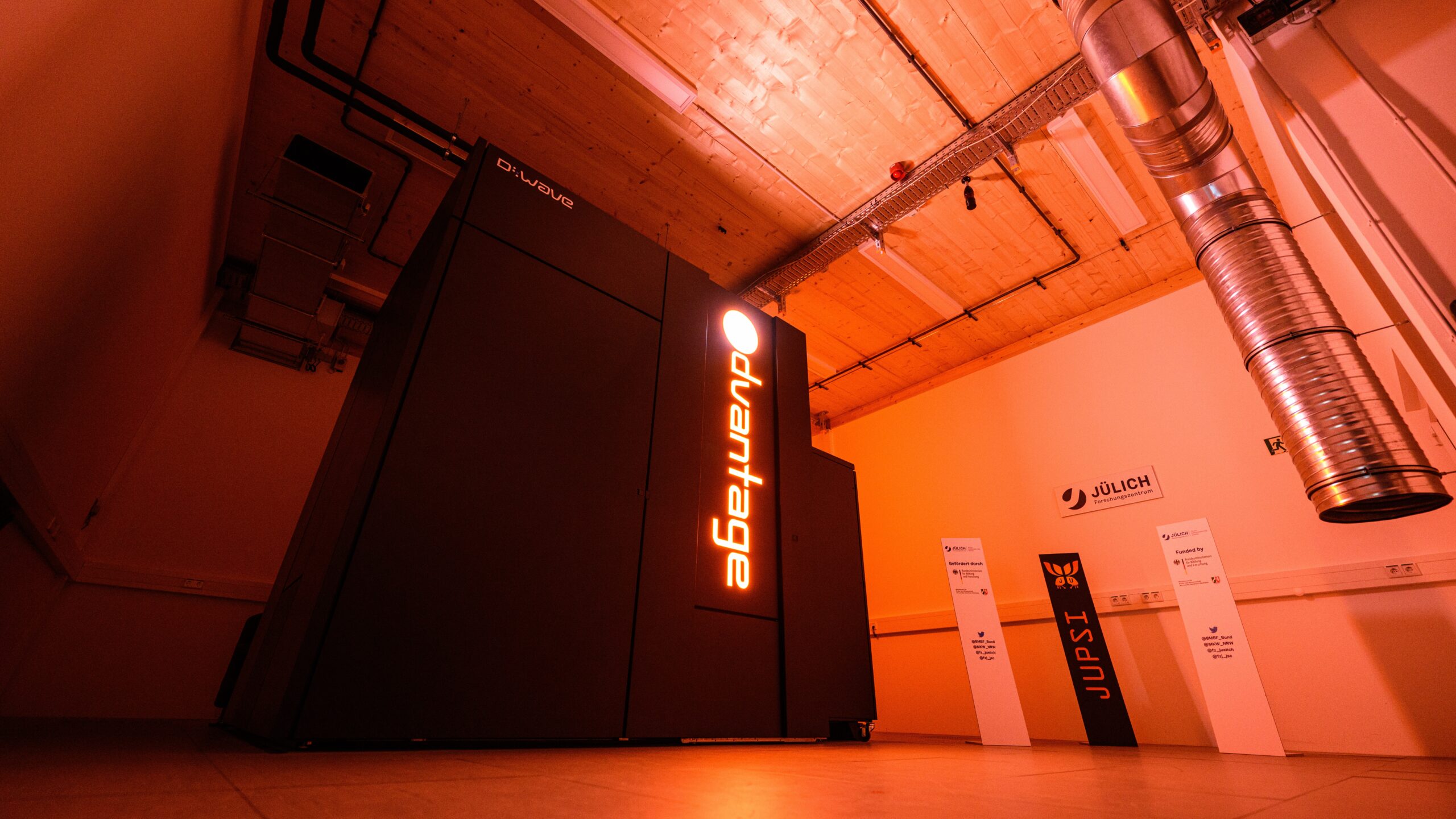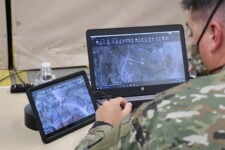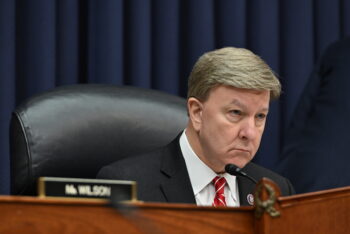
The D-Wave Systems Advantage quantum computer, the first such system with a processor architecture of over 5,000 qubits to go into operation outside North America, is seen at the Forschungszentrum Jülich research center on January 17, 2022 in Julich, Germany. (Lukas Schulze/Getty Images)
WASHINGTON: President Joe Biden today will sign two directives aimed at advancing quantum science, including a memorandum outlining his administration’s plan to address national security risks posed by quantum computers that could be capable of cracking the Defense Department’s encryption.
Quantum computers, one of many quantum information science applications, is a “fundamentally different kind of computer with the ability to analyze information in ways that traditional computers cannot,” according to a White House press release announcing the directives.
Although the Biden administration welcomes “the many promising applications of QIS,” it also acknowledges that advances in quantum technologies pose a risk specifically to America’s economic and national security, a senior administration official told reporters yesterday.
“Research shows that at some point in the not-to-distant future when quantum information science matures and quantum computers are able to reach a sufficient size and level of sophistication, they’ll be capable of breaking much of the cryptography that currently secures our digital communication,” the official said. “The good news is that this is not an insurmountable problem.”
The Defense Information Systems Agency is working with the National Institute of Standards and Technology and DoD leaders to develop quantum-resistant algorithms into military use, Deepak Seth, DISA’s Emerging Technologies Directorate’s chief engineer, said April 27 at the AFCEA TechNet Cyber conference in Baltimore.
DISA is looking to NIST to develop a “broadly accepted standardized suite of commercial public key algorithms that are robustly resilient to quantum-based attacks,” he said.
RELATED: Aussie PM targets quantum tech, announces ‘critical technologies’ push
“While quantum computers offer great promise…they promise to really revolutionize computing and they offer breakthroughs in science and engineering, but while it’s exciting new technology, they also pose a serious security threat,” Seth said. “If large-scale quantum computers were built or if these computers become operational, our current asymmetric encryption technology today will be rendered insecure.”
No one really knows when a fully functional quantum computer would get built, but security mechanisms in place today won’t be effective in protecting data from quantum-based attacks, he added. According to an April report from the Congressional Research Service, some analysts believe that the first quantum computer prototype “capable of breaking current encryption methods” could be developed between 2030 and 2040.
RELATED: DARPA’s ‘ROCkN’ Laser-Based Clocks Will Know What Time It Really Is, To The Sub-Picosecond
The senior administration official added NIST will soon publish new cryptographic standards that can protect against future attacks.
“The process to transition America’s most vulnerable IT systems to these new standards will take substantial time, resources and commitment,” the official said. “Accordingly, America must start the lengthy process of updating our IT infrastructure today to protect against this quantum computing threat tomorrow.”
The memorandum Biden will sign today establishes a national policy that seeks to promote US leadership in quantum information science and technology and provides a roadmap for agencies to meet specific milestones to cryptographic migration.
The memorandum also directs the federal government to protect quantum technologies from theft by criminals and adversaries and initiates collaboration between the federal government and private sector by establishing a “Migration to Post-Quantum Cryptography Project” at the National Cybersecurity Center of Excellence and an open working group with industry.
Biden will also sign an executive order placing the National Quantum Initiative Advisory Committee, the federal government’s independent advisory body for quantum information science and technology, directly under the authority of the White House.
This action aims to ensure “that the president, Congress, federal departments and agencies and the general public receive the most current, accurate and relevant information on quantum information science and technology to drive forward U.S. policy making in this area,” according to the official.
The White House plans to announce members of the advisory board in the next few weeks.
While the two directives “do much to lay the groundwork for continued American leadership in a promising field of science and technology while mitigating many of the risks,” they’re “just the beginning,” the official said.






















